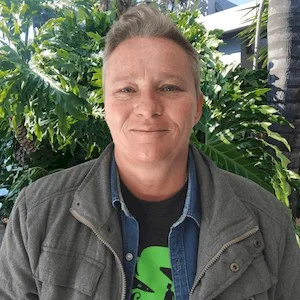Drug addiction, by its very nature, is destructive. Adhering to the principles of treating drug addiction is best practice. This chronic brain disease is characterised by mental obsession and physical compulsion. It involves many negative consequences to all spheres of a person’s life, such as family, work, college or school and the larger community.
Due to the complexity of addiction and its multiple negative consequences, effective treatment for drug addiction is delivered by a multidisciplinary team of professionals who can comprehensively address all associated issues.
Some aspects of addiction treatment need to focus on the addict’s drug use (detoxification and the dismantling of Denial). In contrast, others address the restoration of functioning in family, work or study and healthier social interactions (changing playgrounds, playmates and playthings) allowing the addict to return to being a productive member of society and leading a happy drug-free life.
Treatment for drug abuse comes in many ways using different pharmacological and behavioural methods. Drug addiction treatment centres offer counselling, therapy, supervised medication and other services to those who are trying to break free of their addictions. Treatment is available in outpatient, inpatient, and long-term residential facilities.
The General Types of Treatment Programmes
There are several types of treatment programmes, although they continue to adapt and change regularly and there are some programs that no longer fit into the traditional treatment groups.
Medically Supervised Detoxification& The Principles of Treating Drug Addiction
Detoxification is the process where the body cleans itself of substances and usually has unpleasant side effects, which can, depending on the severity of the drug addiction, be fatal during withdrawal.
Detoxification only deals with physical withdrawal and does not attend to the psychological, social, and behavioural problems.
Drug or alcohol detox alone does not generally result in lasting behavioural changes, however, it is the first step towards recovery and needs to be followed up with rehabilitation treatment. Detox is often managed with medications administered by a doctor in an inpatient or outpatient facility. The purpose of detoxification is to manage the severe and potentially hazardous physiological effects of no longer using drugs. Detoxification needs to be followed by a medical assessment and referral to further rehabilitation treatment.
Medical Aid Cover and Approvals
Many plans contribute to treatment; pre-authorisation speeds access to care.
Long-Term Inpatient Addiction Treatment
- Long-term inpatient addiction treatment gives 24-hour care per day in a residential facility.
 A well-known residential treatment model is the therapeutic community. The therapeutic community has a planned duration of stay between 6 to 12 months that focuses on the “re-socialising” of the addict by using the programme’s community, including the residents and the staff. Treatment concentrates on developing personal accountability and responsibility of the addict leading to socially productive lifestyles. It is very structured and often confrontational.
A well-known residential treatment model is the therapeutic community. The therapeutic community has a planned duration of stay between 6 to 12 months that focuses on the “re-socialising” of the addict by using the programme’s community, including the residents and the staff. Treatment concentrates on developing personal accountability and responsibility of the addict leading to socially productive lifestyles. It is very structured and often confrontational. - Activities are intended to assist patients in assessing their negative belief systems and unhealthy patterns of behaviour. They are encouraged to adopt constructive ways of interacting with others.
- Some therapeutic communities offer additional services, such as training for employment and other support services. They can be specialised to treat people with certain needs, including teens, women, homeless people, those with mental disorders and those in prison.
Short-Term Inpatient Addiction Treatment
- Short-term inpatient addiction treatments are a powerful means of introducing people to the 12-step philosophy and are modelled on an adapted 12-step Minnesota model method.
- The patient usually stays at the addiction treatment centre for 4 to 6 weeks in Primary Care and then 4-12 weeks in Secondary Care followed up with extended outpatients if needed. Once discharged patients return to the clinic for weekly aftercare group therapy and perhaps some individual counselling should they be in crisis.
- In the early days along the road to recovery from active addiction patients who have just left treatment can find some solace, kindred spirits and a healthy way to fill their time, by attending and actively participating in 12-step meetings (self-help support groups like AA-Alcoholics Anonymous and NA-Narcotics Anonymous) every day.
- Keeping patients engaged in aftercare programs is essential as they help to decrease the risk of relapse.
- This form of treatment is used by the most successful drug addiction rehabs around the world and is experienced by addicted patients as less confrontational and more challenging. After all, allowing the addicted patient to increase insight into their behaviour, accept responsibility for their illness, and the harm they’ve caused themselves and others (in a balanced, non-punitive way) and to begin making the necessary behavioural changes that would allow them to move forward more healthily is the optimal aim.
Outpatient Treatment Programmes
- Outpatient treatment programmes are varied and cost less than inpatient treatment. They are more suitable for those who have jobs or family commitments and cannot be away for an extended period.
 Outpatient treatment provides excellent drug education and is generally not as effective if the patient is abusing alcohol or drugs as opposed to being addicted (dependent) and more of a binge pattern user.
Outpatient treatment provides excellent drug education and is generally not as effective if the patient is abusing alcohol or drugs as opposed to being addicted (dependent) and more of a binge pattern user. - Once the patient has moved from abusing drugs or alcohol to actual dependence (a full-blown addiction), inpatient rehab is necessary. Some outpatient programmes with intensive day treatment may be more effective, dependant upon the patient’s needs. Group addiction counselling and participation in 12-step, self-help groups such as AA (Alcoholics Anonymous) and NA (Narcotics Anonymous) is often a major part of the successful addiction recovery.
Individual Drug Addictions Counselling
- Individual, or one-on-one, drug counselling focuses on decreasing or stopping drug and alcohol use. Once again if a patient is abusing drugs or alcohol, counselling to reduce intake or a harm minimisation approach may be successful but if the patient has crossed the line into addiction (the correct clinical term is dependence as it seems everyone’s addicted to something these days – shoes. chocolate etc)
- The addictions counsellor must help the patient to move from the ‘culture of addiction to a healthier ‘culture of recovery’. This transition from one culture to another involves individual drug counselling dealing with the consequences of drug use and the associated lifestyle, such as unemployment, criminal activity, and family and social relationships. Individual Drug addiction counselling looks at developing the patient’s recovery programme by formulating a treatment plan that covers these areas and gives the patient enough support to make the necessary changes.
- Short-term behavioural goals help the patient to develop coping strategies and tools to not only stop drugs but most importantly to stay off drugs. Participation in 12-step recovery fellowships is encouraged regularly and referrals are given for medical, psychiatric and other services.
Group Therapy – Addictions Counselling
- Group therapy for addicted populations reinforces drug-free living due to peer discussion and interaction. Research has proved that group therapy in conjunction with individual drug counselling has positive results. When group therapy mirrors the principles of individual therapy, it is extremely helpful.
- One of the first, and crucial, benefits of group addictions counselling is that patients develop and sense of what Dr, Irvin Yalom called ‘universality’ that they weren’t alone and could relate and identify with their peers in rehab.
- This beginning to trust the group and addictions counselling team is of paramount importance to the success of alcohol and other drug addiction treatment.
For more information on the best treatment options for individual circumstances please contact us on 081-444-5000 or [email protected] for confidential advice and guidance.
Outpatient Treatment Programmes
Outpatient treatment programmes are varied and cost less than inpatient treatment. They are more suitable for those who have jobs or family commitments and cannot be away for an extended period.
Outpatient treatment provides excellent drug education and is effective if the patient is abusing alcohol or drugs and is more of a binge pattern user as opposed to addicted (dependent).
Once the patient has moved from abusing drugs or alcohol to actual dependence (a full-blown addiction), inpatient rehab is necessary. Some outpatient programmes with intensive day treatment may be more effective, dependant upon the patient’s needs. Group addictions counselling and participation in 12 Step, self-help groups such as AA (Alcoholics Anonymous) and NA (Narcotics Anonymous) is often a major part of successful addiction recovery.
Individual Drug Addictions Counselling
Individual, or one-on-one, drug counselling focuses on decreasing or stopping drug and alcohol use.  Once again, if a patient is abusing drugs or alcohol, outpatients or individual addiction counselling to reduce intake and a harm minimisation approach may be successful but if the patient has crossed the line into addiction (the correct clinical term is dependence as it seems everyone’s addicted to something these days – shoes. chocolate etc) then drug addictions treatment as an inpatient is necessary.
Once again, if a patient is abusing drugs or alcohol, outpatients or individual addiction counselling to reduce intake and a harm minimisation approach may be successful but if the patient has crossed the line into addiction (the correct clinical term is dependence as it seems everyone’s addicted to something these days – shoes. chocolate etc) then drug addictions treatment as an inpatient is necessary.
It’s important that the addictions counsellor helps the patient to move from the ‘culture of addiction to a healthier ‘culture of recovery’. This transition from one culture to another involves individual drug counselling dealing with the consequences of drug use and the associated lifestyle, such as unemployment, criminal activity, and family and social relationships.
Individual Drug Addictions Counselling
This looks at developing the patient’s recovery programme by formulating a treatment plan that covers these areas and gives the patient enough support to make the necessary changes.
Short-term behavioural goals help the patient to develop coping strategies and tools to not only stop drugs but most importantly to be able to stay off drugs. Participation in 12-step recovery fellowships is encouraged on a regular basis and referrals are given for medical, psychiatric and other services.
Group Therapy Addictions Counselling
Group therapy for addicted populations reinforces drug-free living due to the peer discussion and interaction. Research has proved that group therapy in conjunction with individual drug counselling has positive results. When group therapy mirrors the principles of individual therapy, it is extremely helpful.
One of the first, and crucial, benefits of group addictions counselling is that patients develop and sense of what Dr. Irvin Yalom calls ‘universality’ that they aren’t alone and can relate and identify with their peers in rehab.
This beginning of trust in their peer group as well as the addictions counselling team is of paramount importance to the success of alcohol and other drug addiction treatment.
For more information on the best treatment options for individual circumstances please contact us today.
Compassionate evidence based principles for treating drug addiction that tackle the brain disease, compulsion and life harms to support lasting recovery. Changes team counsellors are here to help you.Principles for Treating Drug Addiction With Compassion








